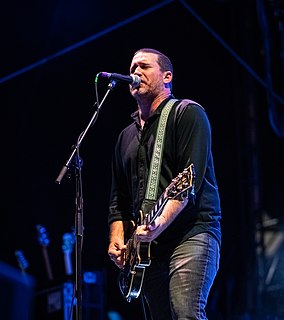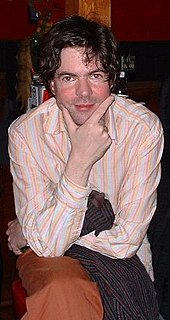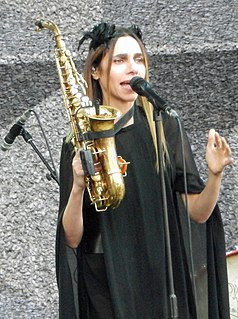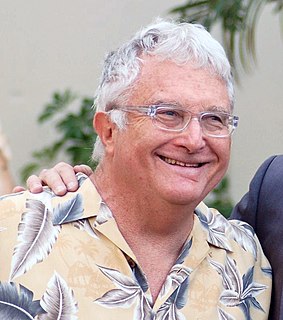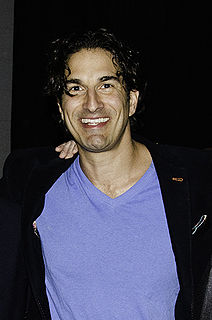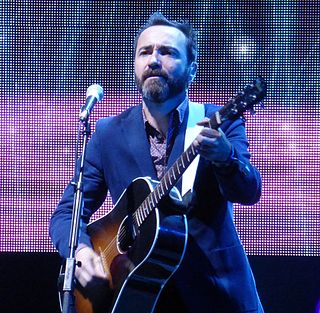A Quote by Chuck Ragan
You learn new song until you're comfortable with it to where you can record it blindfolded, but then when it comes out on the record, you forget about those little nuances and those little things that you changed during the recording process. It's those spur-of-the-moment things you do that makes it an entirely new beast that you then again have to relearn.
Related Quotes
[A]s soon as you try and take a song from your mind into piano and voice and into the real world, something gets lost and it's like a moment where, in that moment you forget how it was and it's this new way. And then when you make a record, even those ideas that you had, then those get all turned and changed. So in the end, I think, it just becomes it's own thing and really I think a song could be recorded a million different ways and so what my records are, it just happened like that, but it's not like, this is how I planned it from the very beginning because I have no idea, I can't remember.
If you're recording the song on your four-track in your kitchen, when you finished writing the song, you're recording, and it's cool, and honor that. And maybe that's the version that should be released. And if you're recording the song again, it shouldn't be because there's a version you love that you're chasing. It should be because "You know what? I made a recording, but I don't love it emotionally." So, okay, then record again. And be in it and take advantage of the buzz and energy of "I'm getting to record right now!" It's such a beautiful and cool privilege.
When I hear a great new record, especially when it's by someone that I respect and admire, then a part of me is like, Why didn't I think of that? Why didn't I write that record? It makes you sick, but in a way it can be a great thing. It makes you want to go back to the lab and start writing again. Maybe it will inspire you to try a little harder.
I don't think that much anymore in terms of 'write a record, record a record, tour a record,' because in my own mind, things have changed, in that I'm just an ongoing artist. I'm not quite sure what the next project needs to be until it presents himself, and then I know. I just follow dutifully while I'm being led.
You start to realize connections between experiences and things that push your buttons, and things that have touched you in those vulnerable areas and what-have-you. And they form a little collection over time - at least I do - and as time progresses and new things are learned, you kind of sift through those things until they're air or danceable, you know? But they start as this thing that's either too hard or too soft to dance to.
When I listen to Airplanes record, it takes me back. I remember a lot of my thought processes when I was 20 or 21, writing those songs and recording that record. I wonder what I was thinking when I was trying to say a particular thing. I hear some of the weird little nuances in the recording; I can hear what the room sounded like. I remember what it smelled like. I can remember sitting up in guitarist Chris Walla's bedroom and for the first time in my life having this realization like, "Maybe I can do this. Maybe I can make music that in some capacity people will enjoy and come see me play."
The touring makes you take a step back. It makes you realize how your lifestyle has changed. You spend all this time inside, alone, writing. And then it becomes about travel and new places and new people. And I do love talking to people about the book, but ideally, I like a little less disruptive lifestyle, I like it when things are more organized.
The things that I have said when I was young and curious about whatever the subject matter was, I respect those - those are growing pains. Even if you make mistakes, I go back to those things, my not-so-great moments because those are my truest moments; those are my human moments. I'm not even mad at the things I said that were a little dicey.
